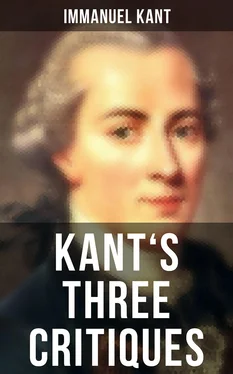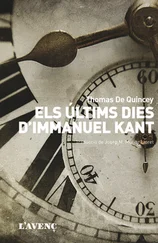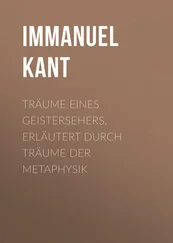Immanuel Kant
The Critique of Pure Reason, The Critique of Practical Reason & The Critique of Judgment
Published by

Books
- Advanced Digital Solutions & High-Quality eBook Formatting -
musaicumbooks@okpublishing.info
2017 OK Publishing
ISBN 978-80-7583-768-4
THE CRITIQUE OF PURE REASON THE CRITIQUE OF PURE REASON Table of Contents
THE CRITIQUE OF PRACTICAL REASON
THE CRITIQUE OF JUDGEMENT
THE CRITIQUE OF PURE REASON
Table of Contents Table of Contents THE CRITIQUE OF PURE REASON THE CRITIQUE OF PURE REASON Table of Contents THE CRITIQUE OF PRACTICAL REASON THE CRITIQUE OF JUDGEMENT
Table of Contents Table of Contents THE CRITIQUE OF PURE REASON THE CRITIQUE OF PURE REASON Table of Contents THE CRITIQUE OF PRACTICAL REASON THE CRITIQUE OF JUDGEMENT
Preface to the First Edition, 1781
Preface to the Second Edition, 1787
Introduction
I. Of the difference between Pure and Empirical Knowledge
II. The Human Intellect, even in an Unphilosophical State, is in Possession of Certain Cognitions “a priori”
III. Philosophy stands in need of a Science which shall Determine the Possibility, Principles, and Extent of Human Knowledge “a priori”
IV. Of the Difference Between Analytical and Synthetical Judgements
V. In all Theoretical Sciences of Reason, Synthetical Judgements “a priori” are contained as Principles
VI. The Universal Problem of Pure Reason
VII. Idea and Division of a Particular Science, under the Name of a Critique of Pure Reason
I. Transcendental Doctrine of Elements
First Part. Transcendental Aesthetic
Section I. Of Space
Section II. Of Time
Second Part. Transcendental Logic
Introduction. Idea of a Transcendental Logic
I. Of Logic in General
II. Of Transcendental Logic
III. Of the Division of General Logic into Analytic and Dialectic
IV. Of the Division of Transcendental Logic into Transcendental Analytic and Dialectic
First Division. Transcendental Analytic
Book I. Analytic of Conceptions
Chapter I. Of the Transcendental Clue to the Discovery of all Pure Conceptions of the Understanding
Introductory
Section I. Of defined above Use of understanding in General
Section II. Of the Logical Function of the Understanding in Judgements
Section III. Of the Pure Conceptions of the Understanding, or Categories
Chapter II. Of the Deduction of the Pure Conceptions of the Understanding
Section I. Of the Principles of a Transcendental Deduction in general
Section II. Transcendental Deduction of the pure Conceptions of the Understanding
Book II. Analytic of Principles
Introduction. Of the Transcendental Faculty of judgement in General
Chapter I. Of the Schematism of the Pure Conceptions of the Understanding
Chapter II. System of all Principles of the Pure Understanding
Section I. Of the Supreme Principle of all Analytical Judgements
Section II. Of the Supreme Principle of all Synthetical Judgements
Section III. Systematic Representation of all Synthetical Principles of the Pure Understanding
Chapter III. Of the Ground of the Division of all Objects into Phenomena and Noumena
Appendix
Second Division. Transcendental Dialectic
Introduction
I. Of Transcendental Illusory Appearance
II. Of Pure Reason as the Seat of Transcendental Illusory Appearance
Book I. Of the Conceptions of Pure Reason
Section I. Of Ideas in General
Section II. Of Transcendental Ideas
Section III. System of Transcendental Ideas
Book II. Of the Dialectical Procedure of Pure Reason
Chapter I. Of the Paralogisms of Pure Reason
Chapter II. The Antinomy of Pure Reason
Section I. System of Cosmological Ideas
Section II. Antithetic of Pure Reason
Section III. Of the Interest of Reason in these Self-contradictions
Section IV. Of the necessity imposed upon Pure Reason of presenting a Solution of its Transcendental Problems
Section V. Sceptical Exposition of the Cosmological Problems presented in the four Transcendental Ideas
Section VI. Transcendental Idealism as the Key to the Solution of Pure Cosmological Dialectic
Section VII. Critical Solution of the Cosmological Problem
Section VIII. Regulative Principle of Pure Reason in relation to the Cosmological Ideas
Section IX. Of the Empirical Use of the Regulative Principle of Reason with regard to the Cosmological Ideas
Chapter III. The Ideal of Pure Reason
Section I. Of the Ideal in General
Section II. Of the Transcendental Ideal (Prototypon Trancendentale)
Section III. Of the Arguments employed by Speculative Reason in Proof of the Existence of a Supreme Being
Section IV. Of the Impossibility of an Ontological Proof of the Existence of God
Section V. Of the Impossibility of a Cosmological Proof of the Existence of God
Section VI. Of the Impossibility of a Physico-Theological Proof
Section VII. Critique of all Theology based upon Speculative Principles of Reason
Appendix. Of the Regulative Employment of the Ideas of Pure Reason
II. Transcendental Doctrine of Method
Chapter I. The Discipline of Pure Reason
Section I. The Discipline of Pure Reason in the Sphere of Dogmatism
Section II. The Discipline of Pure Reason in Polemics
Section III. The Discipline of Pure Reason in Hypothesis
Section IV. The Discipline of Pure Reason in Relation to Proofs
Chapter II. The Canon of Pure Reason
Section I. Of the Ultimate End of the Pure Use of Reason
Section II. Of the Ideal of the Summum Bonum as a Determining Ground of the Ultimate End of Pure Reason
Section III. Of Opinion, Knowledge, and Belief
Chapter III. The Architectonic of Pure Reason
Chapter IV. The History of Pure Reason
Preface to the First Edition, 1781
Table of Contents
Human reason, in one sphere of its cognition, is called upon to consider questions, which it cannot decline, as they are presented by its own nature, but which it cannot answer, as they transcend every faculty of the mind.
It falls into this difficulty without any fault of its own. It begins with principles, which cannot be dispensed with in the field of experience, and the truth and sufficiency of which are, at the same time, insured by experience. With these principles it rises, in obedience to the laws of its own nature, to ever higher and more remote conditions. But it quickly discovers that, in this way, its labours must remain ever incomplete, because new questions never cease to present themselves; and thus it finds itself compelled to have recourse to principles which transcend the region of experience, while they are regarded by common sense without distrust. It thus falls into confusion and contradictions, from which it conjectures the presence of latent errors, which, however, it is unable to discover, because the principles it employs, transcending the limits of experience, cannot be tested by that criterion. The arena of these endless contests is called Metaphysic.
Time was, when she was the queen of all the sciences; and, if we take the will for the deed, she certainly deserves, so far as regards the high importance of her object-matter, this title of honour. Now, it is the fashion of the time to heap contempt and scorn upon her; and the matron mourns, forlorn and forsaken, like Hecuba:
Читать дальше













